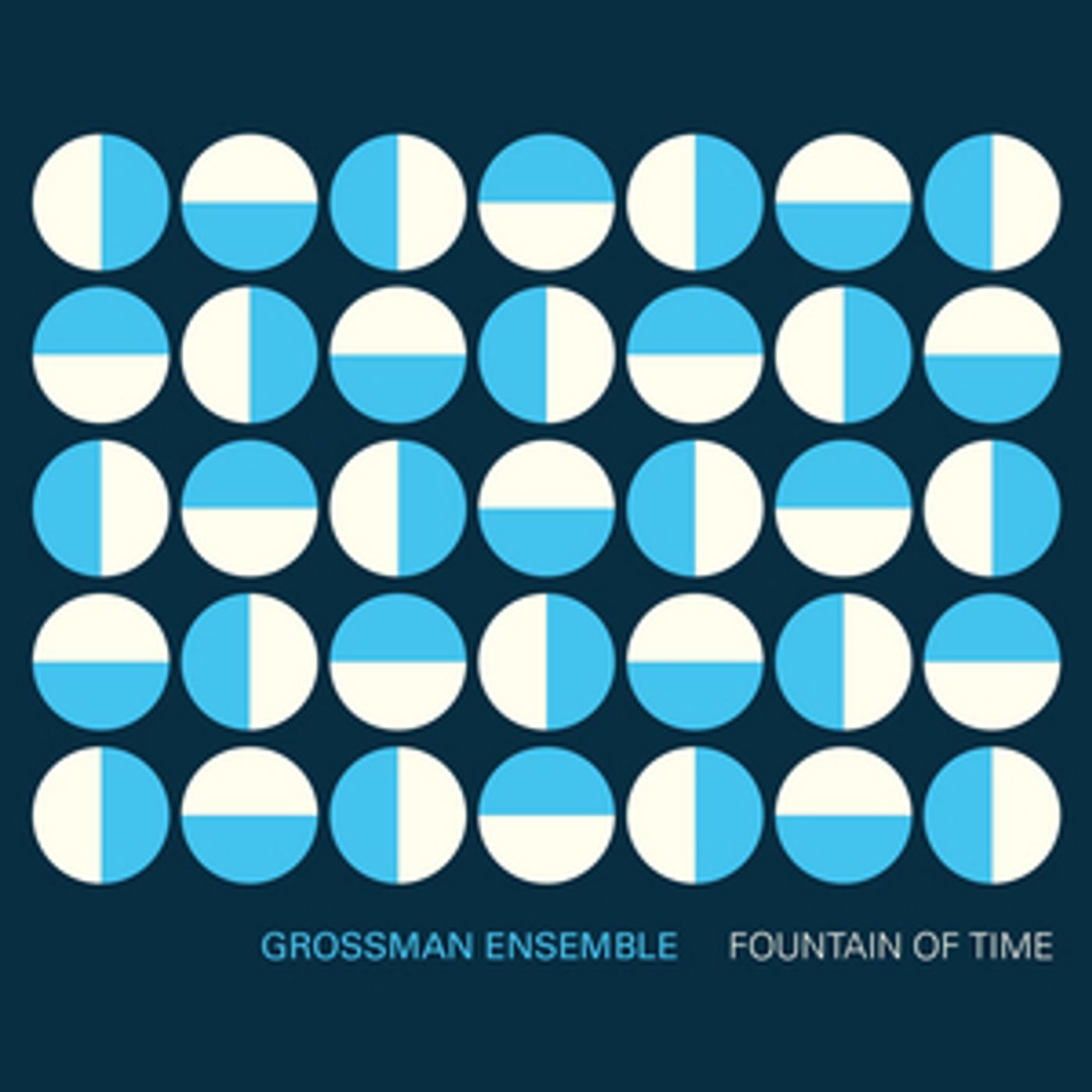The Chicago Center for Contemporary Composition's Grossman Ensemble Releases Debut Album, FOUNTAIN OF TIME
The album features world premiere recordings by Shulamit Ran, Anthony Cheung, David Dzubay, Tonia Ko, and David Clay Mettens.

Today, The Chicago Center for Contemporary Composition's (CCCC) Grossman Ensemble releases its debut album, Fountain of Time, on its own imprint, CCCC Records. The recently formed Grossman Ensemble, founded by composer and director Augusta Read Thomas, is a supergroup of 13 Chicago-based contemporary music specialists, exclusively performing new works from leading and emerging composers at the CCCC. The ensemble engages in a unique workshopping process focusing on interaction between composers, musicians, and conductors. To date, CCCC has commissioned 36 composers for the Grossman Ensemble, and Fountain of Time features five premiere performances from the ensemble's first two seasons, including Shulamit Ran's Grand Rounds, Anthony Cheung's Double Allegories, David Dzubay's PHO, Tonia Ko's Simple Fuel, and David Clay Mettens' stain, bloom, moon, rain. The album was recorded and engineered by multiple GRAMMY-winning engineer, Christopher Willis.
Thomas took several years to bring the ensemble to life - securing funding, and then inviting Anthony Cheung and Sam Pluta to co-direct the ensemble to assist in identifying musicians and finally commissioning a first round of 24 composers. Conductors and composers change each concert cycle, but the lineup of players is fixed. This process allows the music time to grow in the mind of the composer, and to fully inhabit the minds of the players. Of the ensemble's first performance, The Chicago Tribune wrote, "First seasons don't get much bigger, smarter or more multi-dimensional than this."
Thomas, Cheung, and Pluta choose a conductor and four composers for each cycle, then over the course of three months, the Grossman musicians meet for one full day every three weeks. One week before each meeting, composers submit materials and the intensive working days are part-workshop, part-rehearsal. The process allows each composer to take more risks and to live longer with their pieces than would be possible with a traditional world premiere with a larger ensemble. "When you have a permanent conductor, there's a game of ego," says the ensemble's pianist Daniel Pesca. In Grossman rehearsals, players feel more empowered to chime in, to have direct communication with composers. The structure, says ensemble violinist Maeve Feinberg, "gives players a continuing sense of agency." Feinberg continues, "Because we see the piece from sketch to final product, we individually have had an impact on the result. It gives us buy-in during the concert."
In the end, says Thomas, it is all about creating a healthy and vibrant community. "For us to go through this process together is beautiful in the cosmic sense," she says. "Sometimes it's difficult. But to gather human beings to create art together over time? It's essential."
Shulamit Ran's Grand Rounds (2018) was commissioned as the first piece in the Grossman Ensemble's inaugural concert. "For this festive occasion," says Ran, "I wanted to create music that would be upbeat and bold, saying unabashedly and in full color-'we are here!'" Ran also wrote a work "that would highlight the ensemble's virtuosity, at the individual level as well as collectively."Shulamit Ran taught at the University of Chicago Department of Music, and has been awarded most major honors given to composers in the U.S., including the 1991 Pulitzer Prize for her Symphony. Learn more at www.presser.com/shulamit-ran.
Videos

